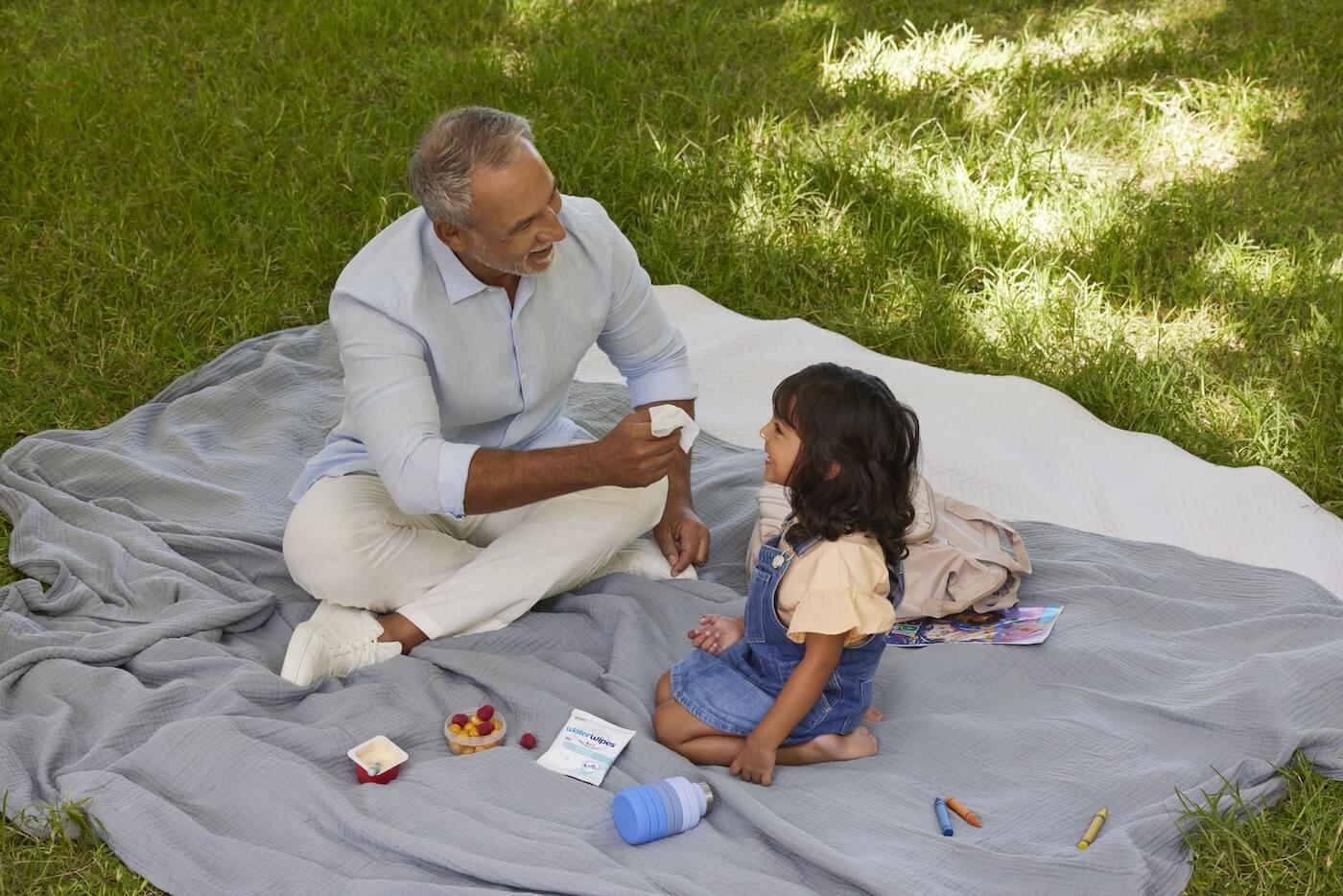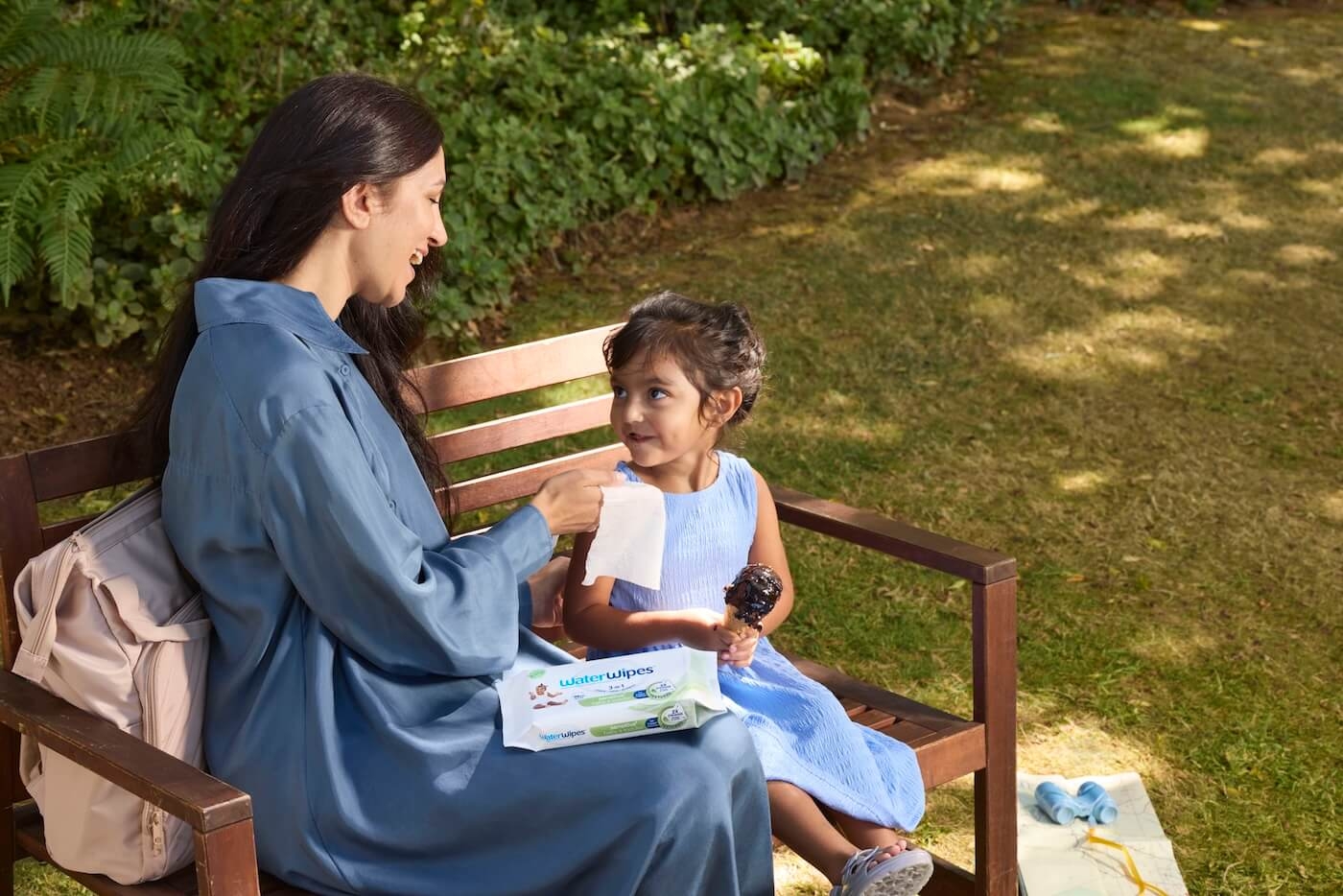Gentle cleaning for newborn and sensitive skin.
Select your region
-
Europe
-
Americas
-
Africa and Middle East
-
Asia Pacific
newborn baby sleep tips: how to put newborn baby to sleep & how much sleep do babies need?

It's no secret that a night of solid sleep is a thing of the past once you bring your new bundle of joy home. While every parent’s day-to-day life is different, there’s one thing we can almost guarantee is the same for all of you: by the end of the day, you’re exhausted and sleep deprived.
In this guide, we've compiled a range of newborn baby sleep tips, considered how much sleep babies need, suggested some practical baby bedtime routines and some ideas on how to make things a little easier for mums and dads that just want to catch some Zzz's.
- 1. How much sleep do babies need?
- 2. How to put your newborn baby to sleep
- 3. Sleeping techniques to try
- 4. Does swaddling help babies sleep?
- 5. Newborn baby sleep tips for sleep-deprived parents
1. How much sleep do babies need?
As parents, we have it drummed into us just how important sleep is for our baby’s well-being and development. But just how much sleep should your baby actually be getting?
The answer differs depending on your baby or toddler’s age. Every child is different, and some develop at slower or faster rates – so you shouldn’t panic if your baby doesn’t conform to these exact timeframes. Some kids just need more or less sleep than others. If you’re in doubt, you can always speak with a doctor or baby sleep specialist. So how much sleep do babies need at each stage of their development? We’ve broken this down below:
How many hours should a newborn baby be sleeping?
From birth to one month old, your baby will usually sleep for 8 ½ hours every night, as well as around 8 ½ hours during the day as naps of varying length. That’s 17 hours of sleep on average every day (sounds blissful, doesn’t it?).
How much sleep do one month old babies need?
Your baby will still be sleeping for 17 hours a day, but they’ll sleep a little more at night (9 hours) and a little less during the day (8 hours).
How much sleep do three month old babies need?
Around the time your baby is three months old, they should be getting around 10 hours sleep a night, and around 6 during the day, spread across three naps.
How many hours should I expect my six month old baby to sleep?
Your baby will now be sleeping around 15 hours a day – 10 hours at night, and 5 during the day, spread across 2-3 naps.
How many hours of sleep does my nine month old baby need?
By nine months, your baby’s daytime naps will be decreasing to around 3 ½ hours, while they should be sleeping for 10 to 11 hours at night. Gone are the blissful days of that first month with your newborn baby!
How long should my baby be sleeping at one years old?
By now (hopefully) your child will be sleeping 11 hours a night and getting three hours of sleep a day across two naps.
What can I expect in terms of sleep for an 18 month old baby?
Your baby’s daytime naps should be further decreasing to around 2 ½ hours a day over two nap periods. They should still be sleeping 11 hours at night.
Of course, these are all ideal world scenarios. We know that every baby is different, with different needs – just because your child isn’t meeting these milestones exactly, doesn’t mean he or she has a problem.
2. How to put your newborn baby to sleep: Establish a bedtime routine
A baby bedtime routine can help if your newborn baby’s not sleeping. It’s beneficial because it gives your baby ‘cues’ that sleep-time is coming, and helps them wind down and relax.
"I couldn’t face reading up on what I was “supposed” to be doing at bedtime, so I just let Eddie fall asleep on me, then would ease him into his own crib before going to bed myself,’ says Laura. ‘But I definitely wouldn’t recommend it! I had no evening to myself, and Eddie got used to being 'cuddled' to sleep, which was really difficult to stop."
Find our step-by-step guide to help you put your newborn baby to sleep:
1. Don't try to keep them awake for longer – it's tempting to try and keep your baby awake in the hopes that this will encourage them to sleep for longer, but usually this just results in an overtired and grumpy baby that won't sleep3.
2. Start early – this allows enough time to do everything in a slow and a relaxed manner.
3. Wash your baby – Bathe your baby in a warm bath or just a wash if you don’t want to bathe them every night.
4. Clean their teeth – As soon as your baby’s first tooth breaks through, start cleaning their teeth at night. Use a clean, damp washcloth, a gauze pad, or a finger brush to gently clean the teeth and the front of the tongue with low-fluoride toothpaste.
5. Dim the lights – Keep lighting low, and try not to let them play with noisy toys so as not to overstimulate them.
6. Read a story – Babies are never too young to start having a story read to them, and this is lovely bonding time as well as great for winding them down.
7. Be agile and respond to their changing sleep patterns– as children get older they might want a nightlight on, for instance.
3. Newborn baby sleep tips: Sleeping techniques to try
Experts have come up with a number of techniques2 that parents can try out that may encourage their little one to get some rest. We've detailed some of these sleeping techniques for babies and what they involve that you can try out alongside our other newborn baby sleep tips.
The chair method
This method involves mum or dad sitting by the baby's crib each night but not soothing the baby if it starts to cry or fuss. Each night, they move the chair a little further across the room until they're out of view, encouraging the baby to start sleeping alone.
The fading method
This method involves adopting 'soothing' techniques such as rocking, talking and feeding the baby as they fall asleep while gradually fading these out over time as they get better at falling asleep.
The Ferber method
The Ferber sleeping technique helps your baby fall asleep independently and was created by pediatrician Richard Ferber. It involves putting your baby into their crib while they are still awake and leaving the room, then waiting a few minutes – three minutes is the recommended amount of time – before going back to soothe them.
However, soothing them shouldn't involve picking your baby up, feeding them or turning on the light but instead patting them or talking in a calm voice. The Ferber technique trains your baby to understand that every time they cry, mum or dad won't be there to pick them up and eventually they'll fall asleep independently.
4. Newborn baby sleep tips: Does swaddling help?
There is no evidence that swaddling helps babies sleep but it can comfort them, as the enclosed feeling reminds them of being cocooned in the womb.
The AAP (American Academy of Pediatrics) notes1 that swaddling is safe for your baby but they must be placed on their back and you should stop swaddling them when they show signs that they can roll over. Learn how to safely swaddle your baby in our guide.
5. Newborn baby sleep tips: Sleep-deprived parents edition
We know that when your newborn baby’s not sleeping, sleep deprivation can feel isolating, but as much as we’d love to give you the secret to getting your baby to sleep – there’s no silver bullet. But what we can do is share a few tips that may just help alleviate some of the strain:
Work in shifts with your partner
Agreeing beforehand how you will share the load at night can be a helpful way to avoid any 4 am arguments. For instance, depending on how your baby is fed, you may try alternating nights (i.e, one of you ‘does’ the whole night, so the other can sleep through, and then swap.)
Keep your baby’s bedroom sleep-ready
Create a dark, relaxing space to try and help your baby sleep. Blackout blinds are invaluable for helping with daytime naps and look into relaxing sounds to play such as white noise or natural soundscapes. Not only can these help relax both baby and you, but they can ‘signal’ sleep-time, which can be helpful.
Establish a routine
"I was against any kind of sleep training or fixed routine, as it seemed a bit unnatural," says Philippa, mum of two. "But when my first son was six months old we were pulling our hair out with tiredness, so I followed a recommended routine of playing, sleeping and feeding, and it did make a difference. He didn’t sleep through instantly but there was an improvement and it was just easier for me to stick to a pattern than constantly wonder whether he was tired, hungry or whatever."
We've featured some tips below on establishing a baby bedtime routine with your newborn baby that you can continue as they grow.
Most of all, remember that what works for one baby won’t work for another, so what’s really important is to try different things, and see what suits you and your child.
And while advice from friends is useful, don’t compare your journey to anyone else’s – you will get there (and you will get your evenings back) even if it takes a little while.
When it comes to sleeping and babies, the most important thing to do is hang in there and don’t feel that you are doing anything wrong. All babies (and parents) go through this and it will settle down eventually. We hope, for now, that these newborn baby sleep tips help and that you can enjoy fewer disturbed nights in the future.
If you found our newborn baby sleep useful, then why not check out our other articles on our Parenting Community:
















